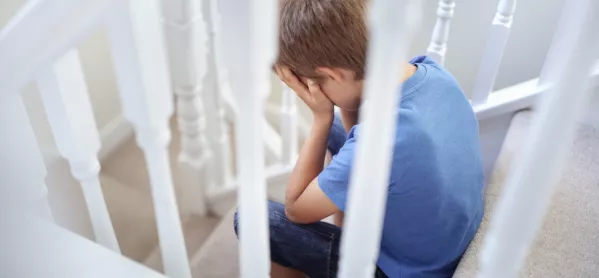When teaching, one of the joys of the job is being there when the metaphorical penny drops.
The lighting up of a pupil’s face when they realise a concept or make a connection helps to fan our professional flames and stokes the satisfactory warm glow of a job well done.
Now, though, hidden behind screens, often just an email address, our students are now disconnected from us in a way for which we never trained and many of us would never choose.
This lack of the human aspect of the role means that teaching remotely can feel soulless and disappointing - and this can be hard to cope with after such a long period of time.
This is hard enough for teachers, but sadly I fear our school children are becoming far too familiar with disappointment.
Yes, it is an emotion everyone experiences during life, and learning to cope with it is healthy - but not this often, this regularly, this endlessly.
Coronavirus has denied students valuable rites of passage
In school, events and calendar highlights that are the historical landmarks and rites of passage have been taken from them and these cannot be replicated online.
It is impossible to hold virtual sports events online and hear the collective supportive roar of a crowd.
It is impossible to feel the crackle of anticipation on a stage amongst the shuffle of paper, scrapes and tuning up of a musical ensemble.
It is impossible to recreate the smiling sea of faces in a packed hall for an end-of-term performance or to feel the love, care and support from a school community in a leavers’ assembly.
There will not be a last day photograph to put alongside a first-day photograph. The obligatory leavers’ signing of shirts and songs sung to parents and the school community will be suspended and pupils will find their end of year is marked not by fun and fanfare but typing, online chats or simply nothing at all.
Put another way, few children will have felt a keen disappointment on not being able to access learning on fronted adverbials but many will have felt the tumbling disappointment dominoes of their wider school life - the events, the shared experiences, the shows, being part of a team, friendship, feeling and being part of a wider community.
The drip of disappointment
And it’s not just at school where this sense of disappointment looms large. Every day in our house brings another tiny little disappointment that my three children are navigating.
The cancelled sporting events, Grandad’s 77th birthday, my youngest’s fourth birthday, the golden wedding celebrations of some dear family friends. No doubt it is the same for millions of others.
Our calendars at home and at school have crumbled. We put on a brave face and try to either pretend that it doesn’t matter or to put another positive spin on things or produce a suitable alternative, but the drip of disappointment still falls relentlessly.
Future excitements
We must be mindful of the cumulative effect of all these little disappointments on our pupils.
Looking forward is one way we maintain our positivity and the falling disappointment dominoes have the potential to chip away at our positivity and our hope - the impact will be felt by everyone but for children it could be especially damaging.
As such, as we rush to provide academic diets for our children at home and wonder about a return to the classroom, we must consider the wider curriculum of events that our children also need to feel happy, to enjoy school, to enjoy life.
When things are back to what we may consider normal, we may want to focus less on an educational battleship point-scoring mentality and much more on helping children to recover from the endless disappointment they have experienced so they realise that life is not always this way.
Emma Turner is the research and CPD lead for Discovery Schools Academy Trust in Leicestershire. She tweets @Emma_Turner75




